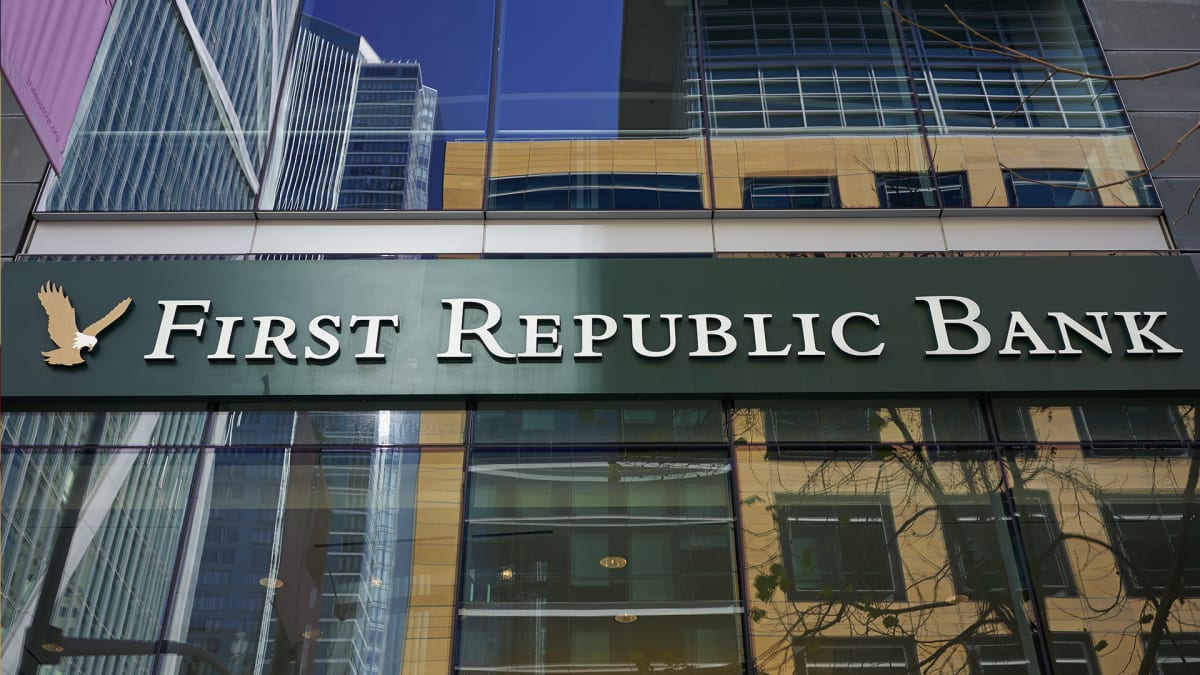
There is no respite for the banks.
For the third consecutive week, the weekend promises to be decisive for the banking sector, as investors fear that Silicon Valley Bank's (SIVB) difficulties will spread.
On March 10 regulators had to shut down the bank, resulting in the second-biggest bank failure in American history, after the collapse of Washington Mutual in the financial crisis of 2008.
Don't Miss: Deutsche Bank Tumbles as U.S. Bank Crisis Spreads to Europe
Two days earlier, Silvergate Bank (SI) wound down its operations. And on March 12, regulators surprised everyone by announcing the shutdown of Signature Bank in New York.
The crisis also reached Europe, pushing the Swiss government to force UBS (UBS) to urgently buy its compatriot Credit Suisse (CS) for the modest sum of $3.24 billion. Credit Suisse, a bank shaken by scandals in recent years, was seen by investors as the weak link in the midst of the banking crisis.
Regulatory Measures
The Swiss government even went so far as to change its laws to facilitate the marriage of two of its financial jewels. Credit Suisse shareholders are not going to vote on this deal, even though the law until now had required investors in a company being acquired to weigh in. Legal actions by investors who have lost everything, in particular those who had bought the debt issued by Credit Suisse, are in progress.
In the U.S. regulators also announced extraordinary measures to avoid a general panic that would destabilize the financial system and the economy. They decided to guarantee all the deposits of SVB and Signature Bank.
The Federal Reserve (Fed) also created a new backstop to lend emergency money to banks in need.
But all this has not reassured investors, many of whom continue to fear contagion.
Unlike the 2008 financial crisis, the problem this time around is not the quality of the banks' assets. The current crisis of confidence was caused by the fact that Silicon Valley Bank bet on interest rates without protecting itself against the risks attached to them.
The Santa Clara, Calif., bank bought Treasury bonds and mortgage-backed securities when interest rates were near zero. Since the borrower was the federal government, there was no risk of default.
On the other hand, the risk that interest rates would rise was very present, especially since Jay Powell, the Fed chairman, in mid-2021 began to warn that the Fed would soon raise interest rates.
When this happened, the value of SVB's portfolio of assets declined, causing a loss of $1.8 billion when the bank sold some of these assets. To satisfy the withdrawals of its startup clients, who were struggling to raise money, SVB announced that it had to raise capital to the tune of $2.25 billion. This announcement caused a bank run.
Investors believe that a large number of banks, and more particularly U.S. regional banks, have made bets similar to the ones SVB made. They wonder whether these banks have enough capital available to cover the losses if ever their customers wanted to withdraw their money.
All eyes are on First Republic Bank. (FRC)
First Republic
The bank saw the three major credit-rating companies lower its rating.
"Although the bank announced that daily deposit outflows have slowed considerably, Moody's believes that with 68% of Q4 2022 deposits uninsured that the bank already has experienced significant deposit loss eroding the strength of the bank's franchise," Moody's Investors Service reported.
"Furthermore, given the relatively short-term nature of most of the bank's new funding, First Republic still faces the eventual need to sell assets to repay these obligations."
First Republic Bank shares are down 89% since SVB's troubles began.
Founded in 1985, the bank offers private personal banking, private business banking and private wealth management. It is present in eight states: California, Oregon, Massachusetts, Florida, Connecticut, New York, Wyoming and Washington.
First Republic Bank caters mostly to wealthy customers: A large majority of the bank's customers are uninsured, meaning that their deposits are not guaranteed by the Federal Deposit Insurance Corp. Its unrealized losses represent about 40% of First Republic Bank's common equity tier 1 capital, which is a bank's highest-quality capital as it is fully available to cover losses.
All this means that the bank may be very vulnerable to a bank run. A coalition of 11 large U.S. banks tried to bail out the bank by bringing in $30 billion in deposits, but this failed to reassure. First Republic Bank is exploring other options. The bank could sell itself. Investors and analysts are awaiting an announcement to this effect over the weekend.
Deutsche Bank
The situation is urgent because doubts continue to spread to other banks. This has been the case since Friday, March 24, with Deutsche Bank.
The German bank has announced a plan to repurchase its debt. Normally when a company redeems its debt, it means that it is solid. But Deutsche Bank's announcement caused a selloff: Deutsche Bank shares fell 3%. At one point the shares were down 15%.
The bank's credit default swaps also soared. These are insurance that investors holding a company's debt buy to protect themselves against the risk of default.
German Chancellor Olaf Scholz had to chime in. He told reporters at an EU summit in Brussels that Deutsche Bank "has modernized, organized the way it works."
"It is a very profitable bank and there is no reason to be concerned,” Scholz said, according to a translation of his remarks.
The open question is whether these words will achieve the intended objective: restoring confidence.







